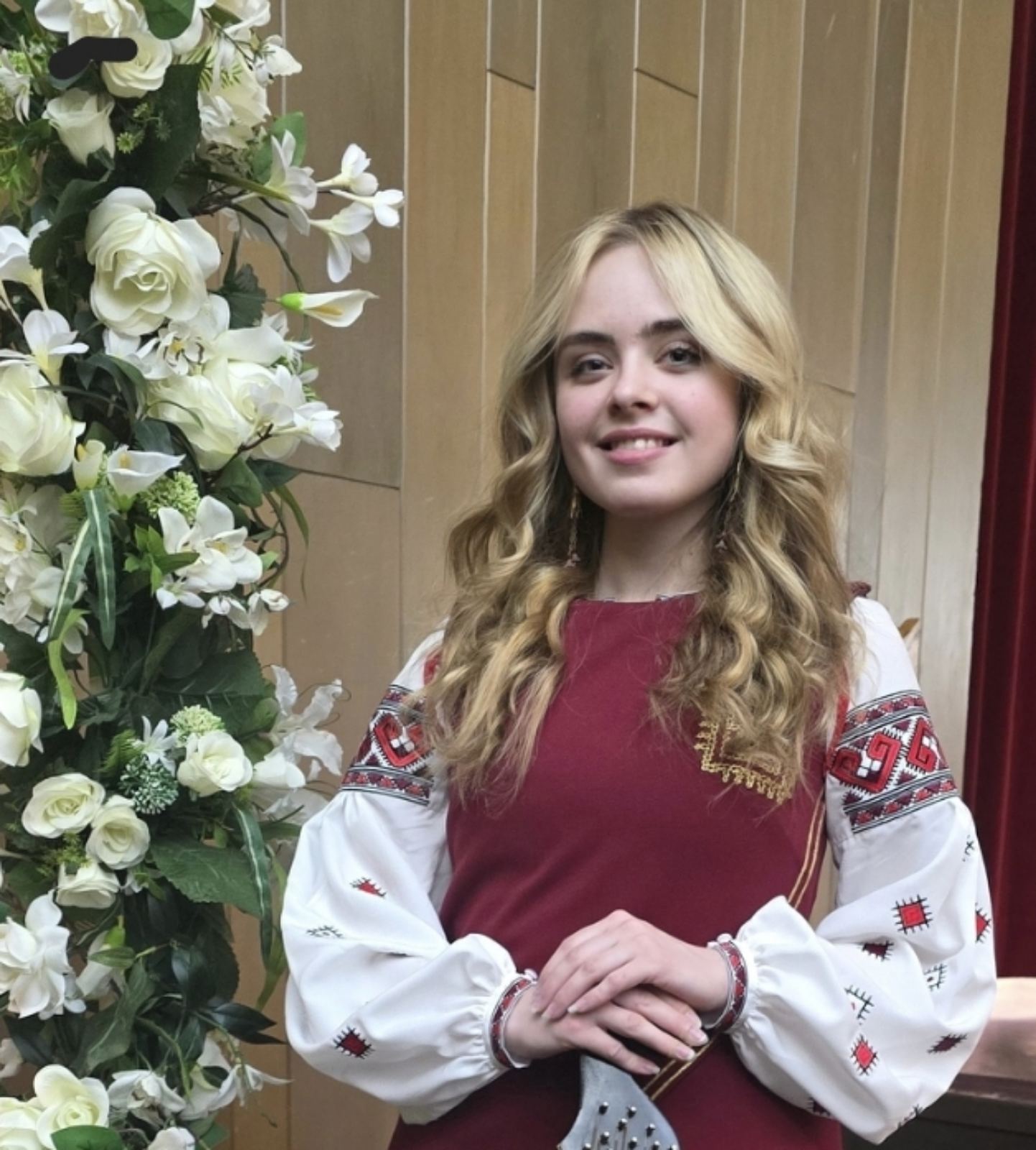Angelika Mehes is a fourth year student studying Graphic Design. She is from Minnesota and both of her parents immigrated from Ukraine.
Byline: By Sam Hill (Web Editor)
Angelika Mehes is a fourth-year student studying Graphic Design. She is from Minnesota and both of her parents immigrated from Ukraine.
“Growing up in an immigrant family shaped how I see resilience, identity and tradition. My parents came from Ukraine at around the same age I am right now which really puts it into perspective for me. They had to rebuild their lives from scratch in a completely new country, which gave me a deep respect for hard work and perseverance. Immigrants face unique challenges—navigating a new language, adapting to an unfamiliar culture, and rebuilding a sense of home. Their experience taught me that culture is not just something to hold onto but something to share, keeping connections alive across generations by bringing families closer.
Preserving traditions is more than remembering the past, it’s about strengthening identity and fostering understanding. When you take the time to appreciate your own heritage, it naturally leads to a greater respect for other cultures as well. Through Ukrainian music and traditions, I hope to inspire pride in cultural roots while encouraging openness to learning from others, creating bridges between communities.
I’ve always played lots of different classical instruments ever since I remember. But I started playing the Ukrainian Bandura more seriously in 2022 after the war in Ukraine began. For me, it made me reflect on my identity and how I can stay more connected to my culture.
I found out that I can also support my community with my skills as a musician. I’ve had lots of opportunities with my brother to perform at different fundraisers, charity concerts and raise money and use music as a way to give back. Since then, my brother and I perform in a duet, but also in larger ensembles all over North America.
The Bandura used to be called a Kobza. It is a unique instrument, a mix between a harp and a lute. It has a strong history because it was once banned. Blind, wandering Ukrainian musicians called Kobzari played these instruments to share stories, history, and news—especially about other Ukrainians.
In the 1930s, many Kobzari were invited to a conference by the Soviet government, supposedly to record and honor their music. But instead, they were arrested and executed. It is a miracle that the Bandura survived because it was almost wiped out. Still, some people kept the Bandura tradition alive by teaching their children this instrument and art all over the world.
In Ukrainian history there is a rich tradition of folk songs—some say the most in the world. One of the most famous all over the world is Carol of the Bells, a melody almost everyone recognizes, yet few realize it came from a Ukrainian composer. This song was introduced to the world when the Ukrainian National Chorus performed it at Carnegie Hall in 1922.
Ukraine used to have their own famous warriors called the Kozaks (Cossacks). Many songs tell of them riding off to battle for their homeland. These songs still feel powerful today, especially with the war going on.
My favorite ancient song is Zore Moya Vechirnaya, which in English is “My Evening Star.” It’s a song that describes the beautiful evening star in the sky but also carries a deeper meaning about longing for freedom and the hope that one day, we will be able to enjoy its beauty together.”
This interview has been edited for length and clarity.
Interview conducted by Sam Hill.

